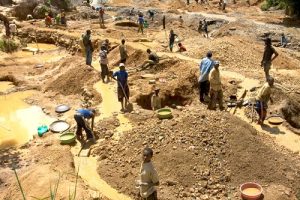
Climate change refers to long-term shifts in weather patterns and global temperatures caused by human activities, particularly the burning of fossil fuels and deforestation. These activities release greenhouse gases into the atmosphere, such as carbon dioxide, which trap heat and lead to a rise in global temperatures. Climate change has various impacts, including rising sea levels, extreme weather events, loss of biodiversity, and disruptions to ecosystems.
The concept of climate change is supported by extensive scientific research and is recognized as a pressing global issue by organizations like the Intergovernmental Panel on Climate Change (IPCC) and the United Nations Framework Convention on Climate Change (UNFCCC). The consequences of climate change are far-reaching and affect all aspects of life, including human health, agriculture, water resources, and economic stability.
Addressing climate change requires collective action at all levels, from individuals to governments and international organizations. This involves reducing greenhouse gas emissions by transitioning to renewable energy sources like solar and wind power, improving energy efficiency, and adopting sustainable practices in transportation, agriculture, and industry. Additionally, protecting and restoring natural ecosystems, such as forests and wetlands, can help absorb carbon dioxide from the atmosphere.
Taking these facts and the vulnerability of the continent into account, the Africa Climate Summit was held in Nairobi, Kenya under the theme “Driving Green Growth & Climate Finance Solutions for Africa and the World. More than 13,000 delegations from across 130 countries including several heads of states in the summit advocate on bringing about new climate finance architecture. The summit also provides an opportunity for leaders to make a united voice to achieve the desired impact.
The summit helped African nations to share innovation, knowledge, experience, and practical approaches to deepen and expand understanding of climate challenges and opportunities, and enable Africa to renew its vision and become more assertive in pursuing a climate and development agenda through a unified approach.
More importantly, the summit helps Ethiopia to share in climate change mitigation efforts. According to Ethiopian President Sahle-Work Zewde, Ethiopia’s unwavering commitment to work with fellow Africans and other global partners to achieve the priorities and the long-term objective of making the planet comfortable for present and future generations.
Africa has tried its best to make its voice heard to speak with one voice and alert partners of the disastrous consequences, noting that Ethiopia has been at the forefront of this fight. She also stressed the need for sufficient research publications on climate change to get accurate representations of Africa’s special needs and circumstances that would build evidence for advancing the key ask of the continent.
President Sahle-Work said that Ethiopia has witnessed in the past decades including the last consecutive years a persistent drought, flooding, and locust invasion where millions are severely affected. Hence, the country has been carrying out different practical policy and action interventions as steps to contribute to emission removal and building adaptation capacity, she further added.
“Building climate-resilient green economy is one of the pillars of our 10-year national development plan. As part of our strategic consideration, we have launched the long-term low-emission and climate-resilient development strategy that has been submitted to the United Nations Framework Convention on Climate Change (UNFCCC) with the aspiration to achieve net-zero emission and building climate-resilient development by 2050,”
She recalled that the Ethiopian Green Legacy Initiative, which was launched in 2019, has succeeded in planting 25 billion seedlings on the degraded landscape by mobilizing volunteers throughout the nation.
“The Initiative helped the development of more than 120,000 nurseries and created more than 180,000 jobs throughout the country. More importantly, the GLI is intended to inculcate green behavior in each of our citizens. The greening initiative has been scaled-up into fruit-bearing perennial trees thereby directly linking it with the country’s food system transformation strategy.”
In the agriculture sector, the president indicated that Ethiopia has achieved notable progress in enhancing its wheat production, effectively transforming a deficit of 15 million metric tons in 2019/2020 into a surplus of 65 million quintals in 2022/23. This achievement has enabled Ethiopia to meet not only its domestic needs but also to commence wheat export.
“Ethiopia planned to cultivate 2 million hectares of farmland during the dry season alone in 2023. The success of wheat production is critical for the country’s efforts to enhance food security and to achieve food sovereignty.” In terms of renewable energy production, she said Ethiopia is also investing in green energy projects, such as hydroelectric, wind, solar, and geothermal energy sectors as well as promoting modern rural cooking technologies.
Ethiopia is striving to finance climate actions proactively and persistently as a means of systematically addressing the economic challenges of the country. Accordingly, she said the government has invested over 82 million USD from 2011 to 2019, mobilized from domestic, bilateral, and multilateral sources, as well as from international climate financing institutions on climate change mitigation and adaptation projects and programs in agriculture, energy, transport, industry, forestry, urban development, and health sectors.
Ethiopian Ministry of Planning and Development Minister Dr. Fitsum Asefa said that the severe drought that Ethiopia has experienced in recent years is an example of the damage that climate change is causing. She said that the drought has displaced millions of people and has caused widespread food insecurity. She also noted that climate change is increasing the frequency and intensity of natural disasters, such as floods and storms, which are also displacing people.
Despite various challenges, Ethiopia is committed to addressing climate change. The Green Legacy Initiative benefits Ethiopia to minimize its greenhouse gas emissions and to adapt to the impacts of climate change, she highlighted.
Besides, she called on all countries to support Ethiopia’s efforts to address climate change. She said that climate change is a global problem that requires a global solution. She urged all countries to work together to prevent climate change-driven migration and to build a more sustainable future for all.
Indeed, policy changes are also crucial in addressing climate change. Governments can implement regulations and incentives to promote renewable energy, reduce fossil fuel consumption, and encourage sustainable practices. More importantly, International agreements like the Paris Agreement aim to limit global warming to well below 2 degrees Celsius above pre-industrial levels and pursue efforts to limit the temperature increase to 1.5 degrees Celsius.
Education and awareness play a vital role in tackling climate change. By understanding the causes and consequences of climate change, individuals can make informed choices and advocate for sustainable solutions. Sharing knowledge about climate change with others helps build a broader understanding and support for action.
Overall, addressing climate change is a complex and urgent task that requires global cooperation and commitment. By taking the Ethiopian practical example into account the world especially Africans can reduce carbon emissions and promote sustainability, Individuals can contribute to mitigating the impacts of climate change which could create a more sustainable future.
BY EPHREM ANDARGACHEW
THE ETHIOPIAN HERALD WEDNESDAY 13 SEPTEMBER 2023





